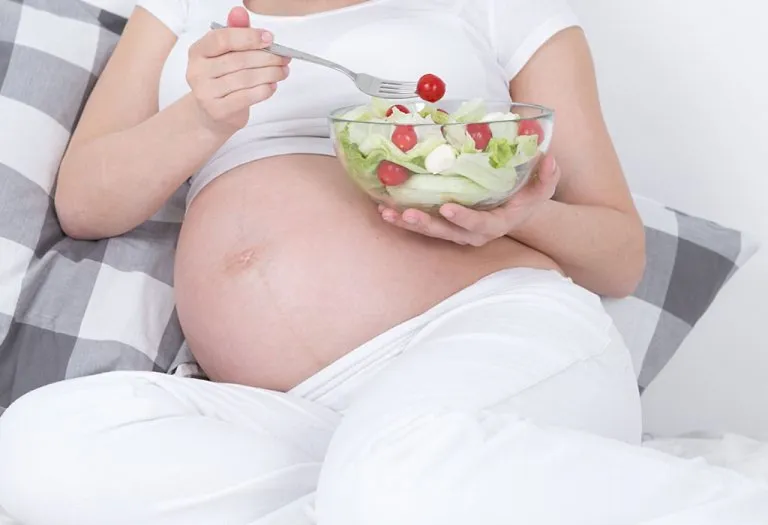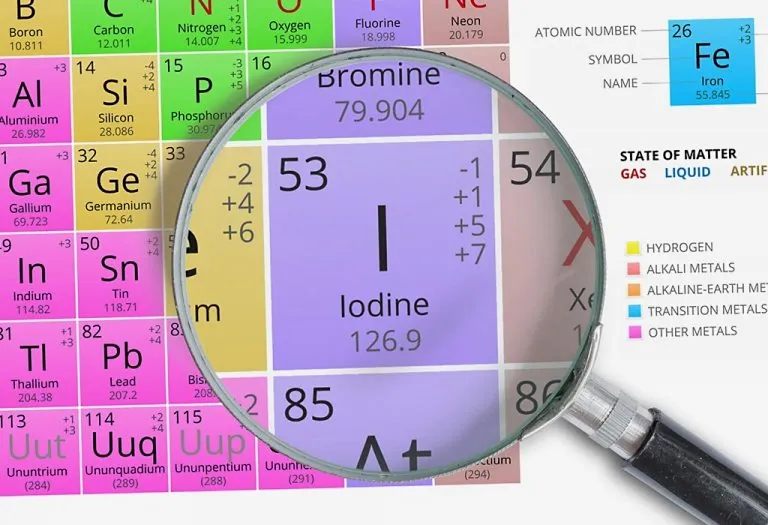Can You Eat Eel When Pregnant?
- What Is Eel?
- Can Pregnant Women Eat Eel?
- Health Benefits of Eating Eel in Pregnancy
- Side Effects of Consuming Eel During Pregnancy
- Steps to Avoid Getting Infected by Eating Eel When Pregnant
- FAQs
Pregnancy is such an exciting time, but doesn’t it feel like everyone suddenly has advice for you? From what to eat to how much exercise to do, the opinions can pile up fast. And sometimes, those opinions don’t even match up, which makes things even more confusing.
Take food, for example. Seafood is usually seen as a healthy choice when you’re expecting, but here’s a question a lot of moms-to-be wonder about: Can I eat eel while pregnant? If you’ve been asking yourself the same thing, you’re definitely not the only one. The good news is, you’ll find everything you need to know about eating eel in pregnancy in this article, so keep reading!
What Is Eel?
As eels are long and serpentine, eel fishing can be difficult. In Indonesia, the fish is regarded as a delicacy, and it is exported to other countries as a byproduct. The eel has become extremely popular in Japan as a result of the numerous health benefits it provides. When consumed during pregnancy, it is a good source of nutrients, and it may have a positive impact on the health and growth of both you and your unborn child.
Can Pregnant Women Eat Eel?
Pregnant women should not consume eels due to the dangers of their blood. Raw eels should never be consumed since even a little eel of blood may be fatal to a person (1). Cooked eel is entirely safe to eat since the proteins are broken down and rendered harmless throughout the cooking process.
Health Benefits of Eating Eel in Pregnancy
When considering seafood options, pregnant women often wonder, ‘is eel good for health’ for both mom and baby. Here are a few ways that properly cooked eel can benefit both you and your little one:
1. Increases Strength and Endurance
Steamed eels have high-calorie content, containing 1,350 calories per pound and 303 calories per 100 grams of meat (2). You may be able to meet your pregnancy’s increased energy requirements by including fish in your diet.
2. Protein Treasure Trove
The smoked eel cannot be overlooked as a protein source. Eel contains 18.4 grams of protein per 100 grams of meat, making it one of the most protein-dense foods available (3). As you are undoubtedly aware, proteins serve as the building blocks of our bodies’ cells. Consuming protein consistently throughout pregnancy benefits the baby’s growth and development.
3. Improves Muscle Strength
The amino acid arginine, which is found in frozen eels, stimulates the generation of human growth hormone (HGH) during rest (HGH). Consuming fish throughout pregnancy may aid in muscle tone maintenance and fat build-up prevention. You should have fish in every meal over the next nine months to maintain a healthy weight. Breast cancer risk reduction may be related to arginine’s ability to inhibit tumour cell proliferation. As a result, it should be a part of your diet.
4. Vitamin-dense
Eel is a good source of vitamin A and B12. Pregnant women should incorporate it into their diets to boost antioxidant levels, which help combat macular degeneration, reduce oxidative stress, and neutralise free radicals. Preventing neural tube problems like spina bifida or anencephaly may also help reduce the likelihood of preterm birth or low birth weight (4).
5. Strengthens and Preserves Bone Vitality
Additionally, eels are a source of phosphorus. As a result, a healthy unborn child will benefit from the solid and solid bones obtained by eel consumption throughout pregnancy.
Side Effects of Consuming Eel During Pregnancy
Pregnancy prompts a heightened awareness of dietary choices, with expectant mothers often seeking clarity on specific foods, such as eel, and their potential impact on maternal and fetal health. Understanding the side effects of consuming eel during pregnancy is crucial for making informed decisions about dietary habits (5).
1. Mercury Levels
Eel, like many other fish, may contain mercury, a substance known to pose risks to the developing nervous system of the fetus.
2. Parasitic Infections
The consumption of raw or undercooked eel carries the risk of parasitic infections. This risk is particularly pertinent during pregnancy when the immune system may be compromised.
3. Allergic Reactions
Eel allergies are rare but can occur. Understanding these potential allergic responses is crucial for ensuring the well-being of both the mother and the unborn child.
Steps to Avoid Getting Infected by Eating Eel When Pregnant
If a pregnant woman consumes an excessive amount of eel, her mercury levels may increase, and pregnant women should be aware of this risk. To avoid illness, women who ingest cooked eel while pregnant should take the following precautions:
- Cook at the Right Temperature: When it comes to eel and pregnancy, cooking it properly is key to keeping both mom and baby healthy. Before consuming the eel, be sure that it has been cooked to a temperature of at least 145 degrees Fahrenheit. You may eat cooked eel without being concerned since cooking breaks down the proteins, making them safe to consume (6).
- Avoid Excessive Eel Consumption: This product may include parasites and other pathogens. Therefore, consume just enough food to maintain your body’s comfort level. Additionally, you may consume fish taken throughout the day since the eel may not have been cooked. Therefore, the optimal choice would be grilled eel.
- Always Read the Labels Before Purchasing: Eel roe is the most frequent eel product in Japan. It is well-known to cause various health concerns and should thus be avoided. If you are unsure about an item, avoid purchasing it. Perfumes, essential oils, vitamins, and other nutritional supplements all fall under the same category.
- Always Read the Labels Before Purchasing: This sort of fish is already consumed in an excessive number of Asian nations. It would help if you made an effort to minimise your exposure to these items to avoid feeling guilty. Consume as much as possible while maintaining a healthy lifestyle. If you’re serious about your health, eat just once a week.
- Eels May Have Various Adverse Consequences: Several symptoms include headaches, diarrhoea, constipation, melancholy, weariness, irritability, heartburn, acne, skin illnesses, urinary abnormalities, and thyroid difficulties. So, educate yourself before anything goes wrong! If you have any of these symptoms, you should immediately stop consuming them. The only method to determine if the eel you finished was safe is to see a physician.
FAQs
1. Can I eat eel sauce while pregnant?
There’s a lot of confusion about eel sauce (sometimes called unagi sauce). Eel sauce is a condiment, not a sauce prepared from eels. Eel sauce is often used as a glaze or spread over grilled or broiled eel. Mirin (Japanese wine) and sake (Japanese whisky) are other common ingredients. Pregnant women may safely consume eel sauce since it includes just a minimal amount of alcohol. As a result, you may need to use a smaller amount of eel sauce when you prepare your own.
2. Can pregnant women eat eel sushi?
Eating eel sushi while pregnant is permissible, but only in small amounts at a given time (7). Additionally, it is recommended that pregnant women cook their eels until they reach a minimum internal temperature of 145 degrees Fahrenheit before consuming them. Cooking your fish reduces your chances of contracting food poisoning and experiencing gastrointestinal upset after eating it. According to the Food and Drug Administration, pregnant women should consult their doctor before consuming Eel sushi.
3. Can I eat Japanese and BBQ eel while pregnant?
Yes, you can eat Japanese and BBQ eel during pregnancy, but with caution. Ensure that the eel is thoroughly cooked to reduce the risk of parasitic infections. Additionally, be mindful of mercury levels, as some fish, including eel, may contain mercury. Moderation and proper cooking methods can help you enjoy eel safely while considering your baby’s health. It’s advisable to consult with your healthcare provider for personalised guidance based on your specific health circumstances.
4. How much eel can I eat while pregnant?
You can enjoy eel once or twice a week as part of your seafood intake, provided it’s cooked thoroughly and balanced with other nutrient-rich foods.
Eating eel during pregnancy requires a balanced approach. While eel can provide valuable nutrients like omega-3 fatty acids, expectant mothers must be mindful of potential risks such as mercury contamination and the risk of parasitic infections. Thorough cooking and moderation are key to minimising these concerns. It is crucial for pregnant individuals to stay informed about the potential benefits and risks associated with consuming eel and to seek guidance from healthcare providers to make informed decisions that prioritise the well-being of both the mother and the developing baby.
Also Read:
Consuming Crab in Pregnancy
Eating Tuna during Pregnancy
Eating Prawns when Pregnant
Is It Safe to Eat Shrimp in Pregnancy
Was This Article Helpful?
Parenting is a huge responsibility, for you as a caregiver, but also for us as a parenting content platform. We understand that and take our responsibility of creating credible content seriously. FirstCry Parenting articles are written and published only after extensive research using factually sound references to deliver quality content that is accurate, validated by experts, and completely reliable. To understand how we go about creating content that is credible, read our editorial policy here.
1. American Oceans – Can You Eat Eel and How Does It Taste?
2. U.S. Department of Agriculture – Raw Eel
4. NHS UK – Vitamin B12 or folate deficiency anaemia
5. Centers for Disease Control and Prevention – Food Poisoning From Seafood
6. FoodSafety.gov – People at Risk: Pregnant Women
7. American Pregnancy Association – Is Sushi Safe for Pregnant Women?



































